Books
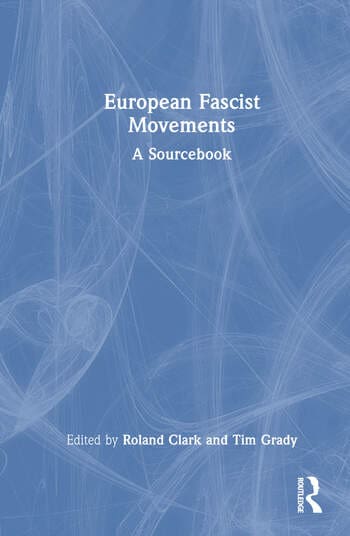
European Fascist Movements A Sourcebook
Edited by Roland Clark, Tim Grady. This volume offers a fresh and original collection of primary sources on interwar European fascist movements. These sources reflect new approaches to fascism that emphasise the practical, transnational experience of fascism as a social movement, contextualising ideological statements within the historical moments they were produced. Divided into 18 geographically based…
Read more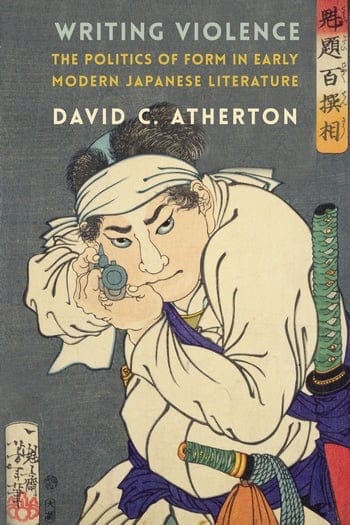
Writing Violence: The Politics of Form in Early Modern Japanese Literature
By David C. Atherton. Edo-period Japan was a golden age for commercial literature. A host of new narrative genres cast their gaze across the social landscape, probed the realms of history and the fantastic, and breathed new life into literary tradition. But how to understand the politics of this body of literature remains contested, in part…
Read more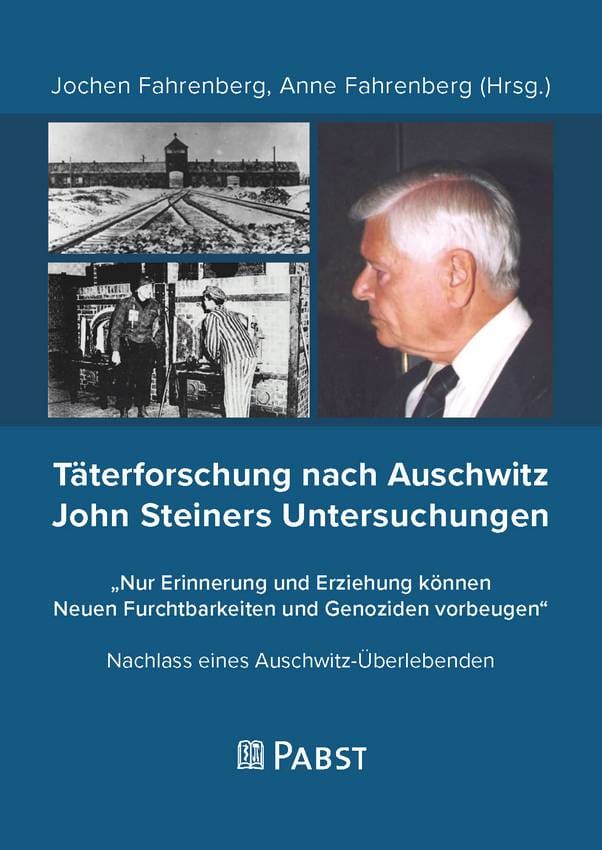
Täterforschung nach Auschwitz: John Steiners Untersuchungen
Edited by Anne and Jochen Fahrenberg. John Michael Steiner war ein tschechisch-amerikanischer Soziologe. Er wurde 1925 in einer deutschsprachigen Familie in Prag geboren und, noch als Schüler, im Jahr 1942 inhaftiert und wie seine Eltern in Konzentrationslager gebracht: Theresienstadt, dann Auschwitz-Birkenau und Außenlager Blechhammer. Seine drastischen Erfahrungsberichte “Sklavenarbeit in der Fabrik für synthetisches Benzin Blechhammer”;…
Read more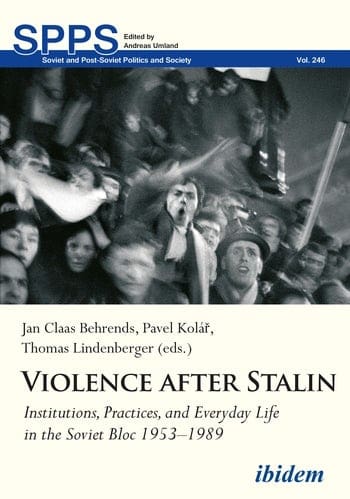
Violence After Stalin: Institutions, Practices, and Everyday Life in the Soviet Bloc 1953–1989
Edited by Jan Claas Behrends, Thomas Lindenberger, and Pavel Kolář. This volume by an international group of historians presents case studies on the use and types of physical violence in the USSR and Moscow’s European satellite states after the death of Joseph Stalin. While communist rule until 1953 was characterized by repression and mass-terror, violence…
Read more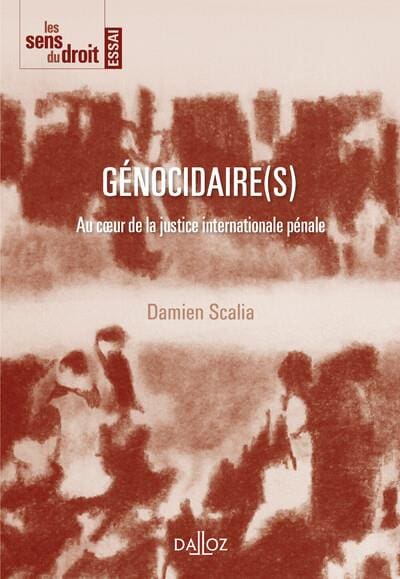
Génocidaire(s): au coeur de la justice internationale pénale
By Damien Scalia. This book draws on unique materials – about sixty interviews Scalia conducted with some of the most serious criminals tried by international criminal courts. In his encounters with these génocidaires, the author listened to them for a long time, not to study how they became perpetrators, as is generally the case in…
Read more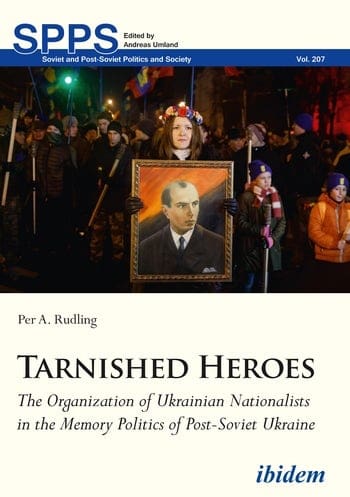
Tarnished Heroes: The Organization of Ukrainian Nationalists in the Memory Politics of Post-Soviet Ukraine
By Per A. Rudling. Following its declaration of independence in 1991, Ukraine has sought to produce a new national history. After the 2004 Orange Revolution, newly elected president Viktor Yushchenko embarked on an ambitious project to rehabilitate the most radical branch of the far-right interwar and wartime Organization of Ukrainian Nationalists (OUN) and its armed…
Read more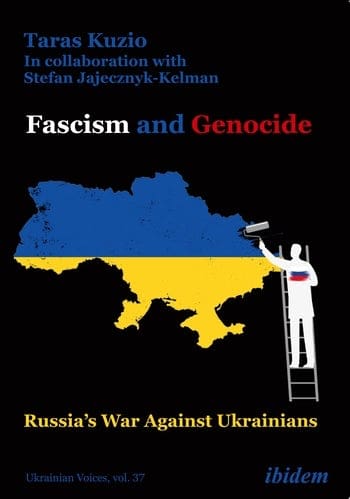
Fascism and Genocide: Russia’s War Against Ukrainians
By Taras Kuzio and Stefan Jajecznyk-Kelman. This book details how Russia’s February 2022 open invasion of Ukraine has led to the biggest military conflagration and refugee crisis in Europe since World War II—a development with global ramifications. Co-written by a leading Western political expert, with three decades of research on contemporary Ukraine, and a prolific…
Read more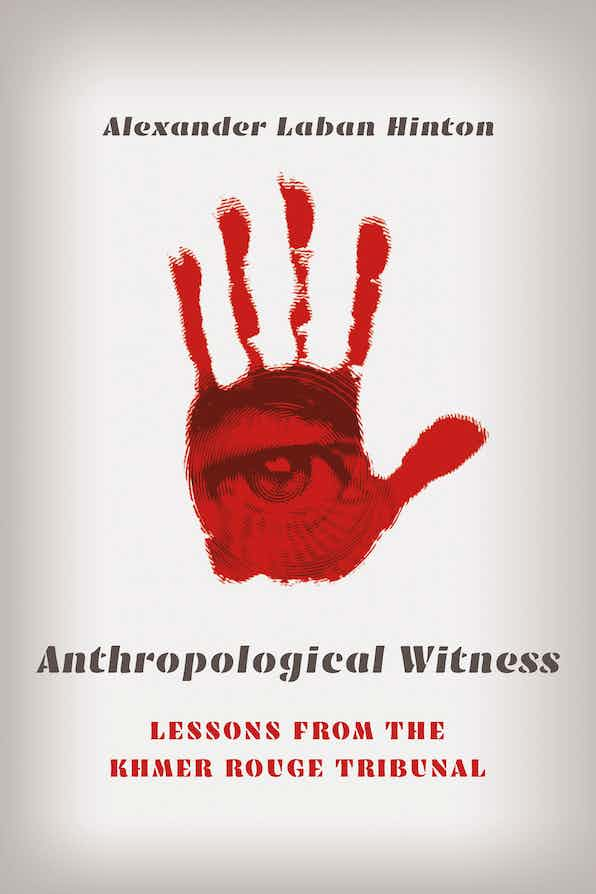
Anthropological Witness: Lessons from the Khmer Rouge Tribunal
By Alexander Laban Hinton. Anthropological Witness tells the story of Alexander Laban Hinton’s encounter with an accused architect of genocide and, more broadly, Hinton’s attempt to navigate the promises and perils of expert testimony. In March 2016, Hinton served as an expert witness at the Extraordinary Chambers in the Courts of Cambodia, an international tribunal established to…
Read more
Abolitionist Intimacies
By El Jones. In Abolitionist Intimacies, El Jones examines the movement to abolish prisons through the Black feminist principles of care and collectivity. Understanding the history of prisons in Canada in their relationship to settler colonialism and anti-Black racism, Jones observes how practices of intimacy become imbued with state violence at carceral sites including prisons,…
Read more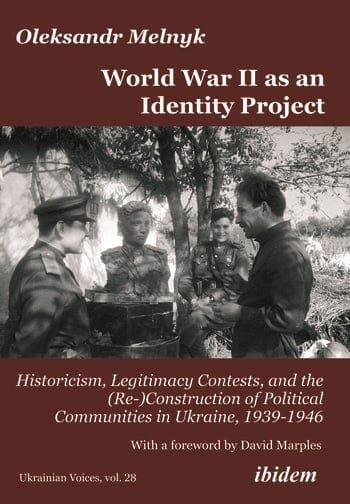
World War II as an Identity Project: Historicism, Legitimacy Contests, and the (Re-)Construction of Political Communities in Ukraine, 1939–1946
By Oleksandr Melnyk. This book explores the relationship between history, legitimacy, and violence in the building and breaking of nations and states on the territory of contemporary Ukraine during the Second World War and in its aftermath. At its center are various institutions of the Soviet state. Other states and rival political movements also enter…
Read more
